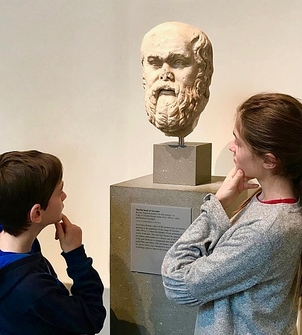Aristotle maintains that being is said in several senses. In particular, in chapter 7 of Metaphysics V (1017a 7- 1017b 9), he delves into the notion of “being” and establishes a fourfold distinction of the senses of being (being per accidens, being per se, being as truth, being as potentiality and actuality). The medieval authors working on the Metaphysics over the centuries further develop Aristotle’s account by interpreting these several senses in diverse ways, even sometimes reducing the number of senses of being, e.g., from four to two senses (being divided into categories and being as truth). While the secondary literature on the medieval Arabic and Latin reception of the Metaphysics has largely focused on the analogy of being, the medieval reformulation of the several senses of being as a main topic of the Aristotelian ontology have been overlooked, with few exceptions). Aristotle’s account and its medieval reception have inspired a revival in contemporary analytical metaphysics. Our conference seeks to spearhead a groundbreaking exploration into this rich and complex doctrine.
To register for in-person or online participation (Zoom), as well as for any other queries please contact: david.anzalone@unilu.ch
Monday, June 10th, 2024: From Aristotle to the Middle Ages
9.00-12.00 First Session
Chair: David Anzalone (Lucerne)
9:00-9: 45 Giovanni Ventimiglia (Lucerne) Welcome and General Introduction
9:45-10:15 Coffee Break
10:15-11:00 Marta Borgo (Lucerne - Paris) - Davide Falessi (Lucerne) - Mostafa Najafi (Lucerne) Aristotle in Greek, Arabic, and Latin on the Senes of Being. Remarks on Some Transformations of Metaphysics V 7 across Three Philosophical Traditions
11:00-11:25 Silvia Donati (Bonn), Discussion (from Greek and Arabic into Latin)
11:25-11:35 Amos Bertolacci (Lucca), Discussion (from Greek into Arabic)
11:35-12:10 Q & A
12:15-14:00 Lunch Break
14: 15-16:30 Second Session
Chair: Ali Taghavinasab (Lucerne)
14:15-15:00 Mostafa Najafi (Lucerne), Making Sense of Ibn Sīnā’s Senses of Being: Ilāhiyyāt 1.5 vs. 5.1
15:00-15:25 Amos Bertolacci (Lucca), Discussion
15: 25-16:00 Q & A
16:00-16:30 Coffee Break
16:30-18:15 Third Session
Chair: Iacopo Costa (Lucerne - Paris)
16:30-17:15 Marta Borgo (Lucerne - Paris), Accidents between Being per accidens and Being per se. Some XIIIth-century Interpretations of Metaphysics V 7, 1017a7-30
17:15-17:40 Fabrizio Amerini (Parma), Discussion
17.40-18.15 Q & A
Tuesday, June 11th 2024: From Late Middle Ages to Contemporary Philosophy
09:00-11:00 Fourth Session
Chair: Mostafa Najafi (Lucerne)
09:00-09:45 Davide Falessi (Lucerne- Paris) Being per se and being per accidens contra Ockham. Realist Arguments against the Nominalist Interpretation of Metaphysics V 7
09:45-10:10 Gyula Klima (New York), Discussion
10:10-10:45 Q&A
10:45-11:00 Coffee Break
11:00-12:45 Fifth Session
Chair: Dario Affronti (Lucerne)
11:00-11:45 Iacopo Costa (Lucerne-Paris), John Buridan's Commentaries on Metaphysics V 7 in the ms. Darmstadt, Universitäts- und Landesbibliothek, 516
11:45-12:10 Ana María Mora Marquez (Gothenburg), Discussion
12:10-12:45 Q&A
13:00-15:00 Lunch Break
15.00-16.00 Round Table moderated by Giovanni Ventimiglia (Lucerne)
16:00-16:15 Coffee Break
16:15-17:00 Marta Borgo, Iacopo Costa, Davide Falessi, Mostafa Najafi, Conclusions
Organising Committee
Scientific Committee
Giovanni Ventimiglia
David Anzalone
Marta Borgo
Iacopo Costa
Davide Falessi
Mostafa Najafi
This conference is organised within the context of the SNSF research projectSenses of Being. The medieval Reception of Aristotle’s doctrine starting from Metaphysics V 7 (1017a 7-b 9), with the generous support of The University of Lucerne's Research Commission
